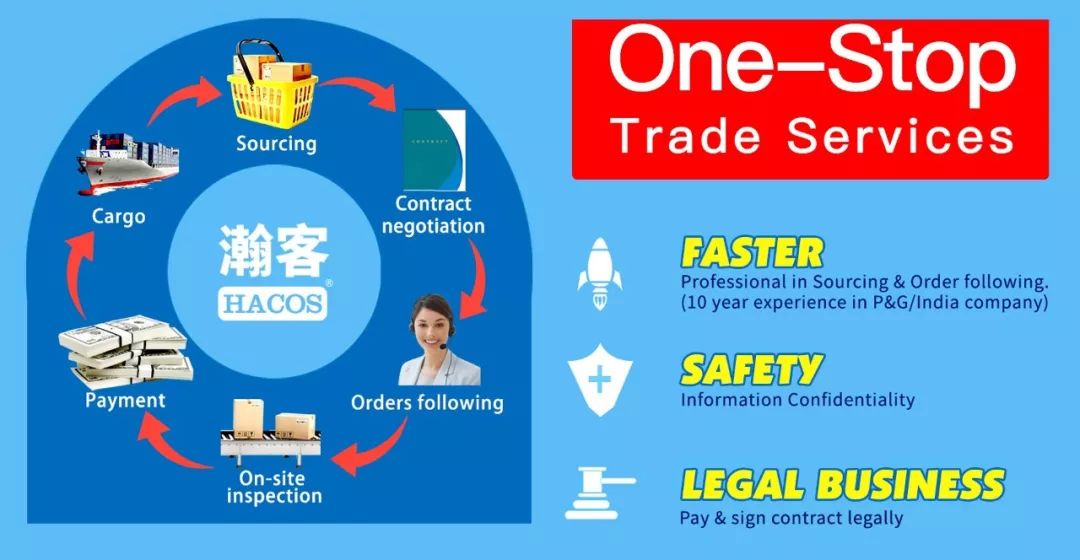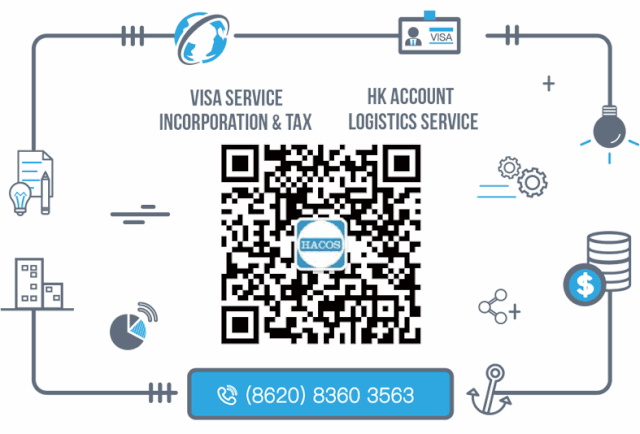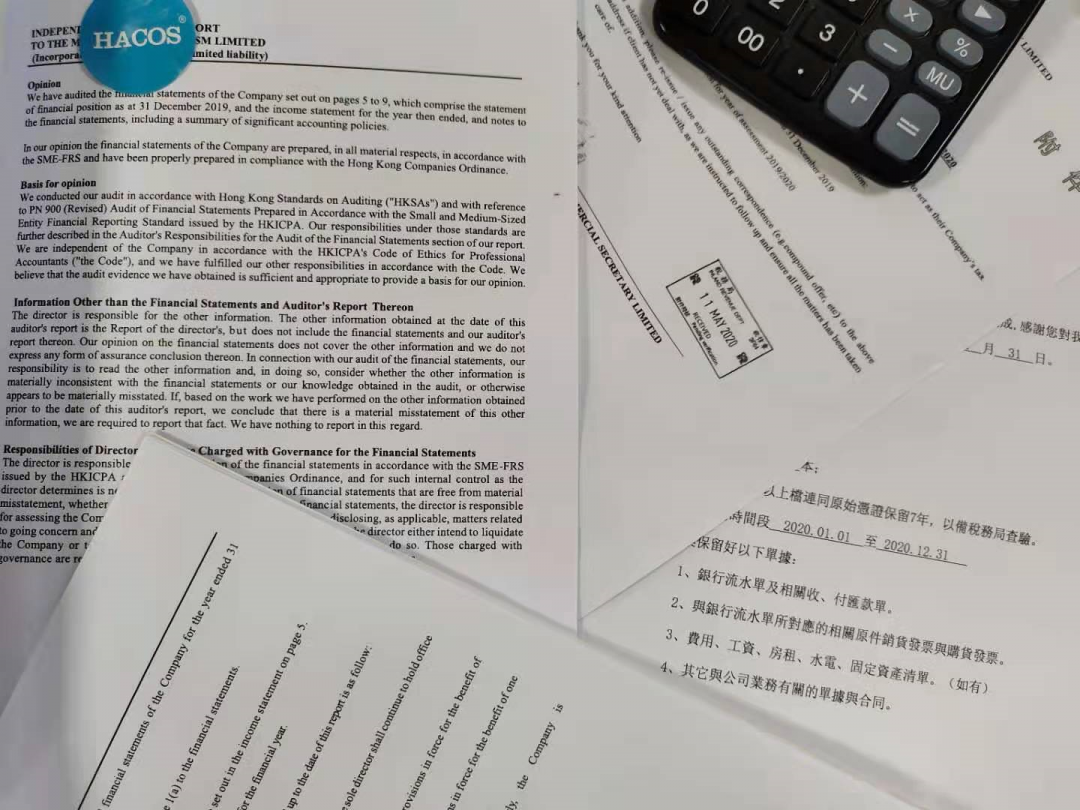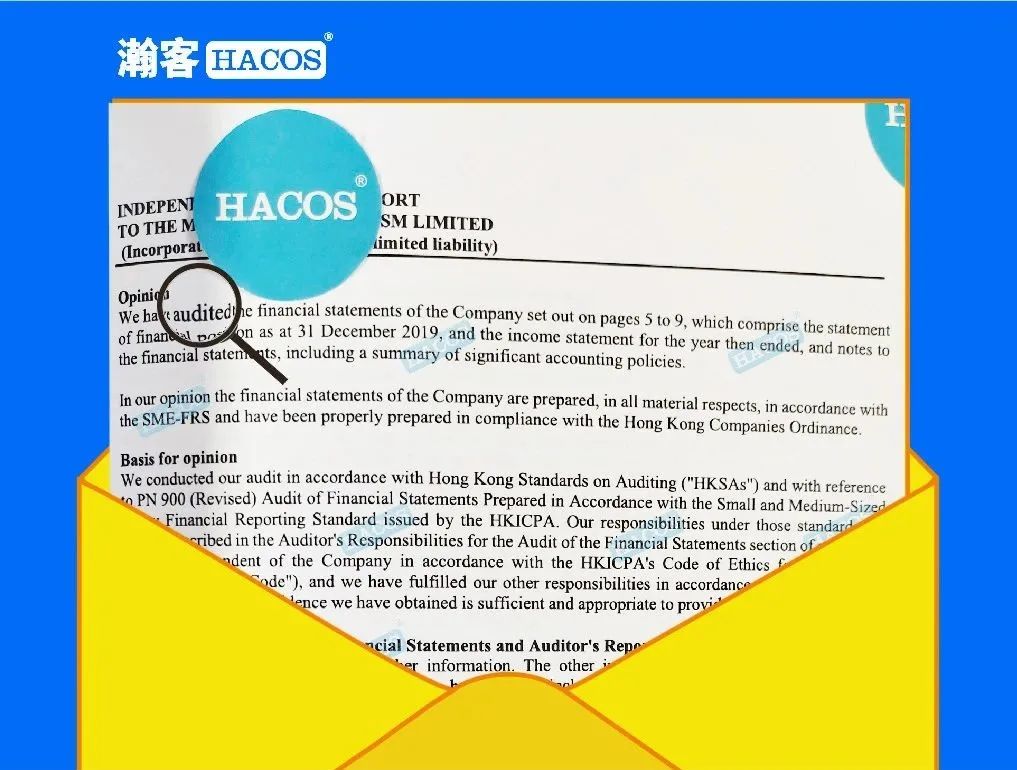
Hong Kong has long served as a popular gateway into China for foreign businesses. However, in order to combat money laundering and fraud, the authorities have taken strict measures such as freezing customer bank accounts. It is necessary to know how to maintain your bank account better.
As we’ve said thousands of times before, Hong Kong banks may freeze a customer’s bank account for possible money laundering reasons. For most of the Hong Kong companies that legally operate, their businesses will be badly affected if the bank account is frozen.
Some people may think that they can just spend more money and open a new account if the original one is closed.
However, as long as you make a good plan for your business and get the documents well-prepared, it is so easy to pass the bank’s review and avoid the risks of account closure and penalty, without spending unnecessary time and expenses.
Today we will share some knowledge about auditing for Hong Kong companies.
WHAT IS AUDITING FOR HK COMPANIES?
In Hong Kong, an audit is an examination of the financial report of HK company by certified accountants. Once the auditing is done and all the reports and documents are completed, relevant documents need to be sent to the government department.
All companies in Hong Kong must properly keep relevant business information and account books. The company’s books must be kept for more than 7 years so that they can be checked at any time.
In other words, as long as your Hong Kong company has a business, even if you have canceled your Hong Kong company, the Hong Kong Taxation Office can check your past 7-year bank account.
If your company makes zero declaration while not meeting the requirements, the authorities may treat it as an act of tax evasion or tax fraud, and ask you to pay the taxes. In serious cases, the company may even be blacklisted.
Auditing for Hong Kong companies is an aspect you cannot ignore. You should consider accounting and auditing as early as at the time when you set up your business.
Doing auditing for your HK company can help you:
- Operate the company better with completed business-related documents and accounting records.
- Maintain HK bank account better without the risks of being shutdown or blacklisted due to the audit problems.
- Avoid the risks of penalty due to the suspicion of tax evasion or fraud.
- Prepare for the review better under the implementation of CRS.
An audit report is a written opinion of an auditor regarding an entity’s financial statements. In brief, an audit report includes three parts: the auditor’s opinion, the company’s financial statements, and tax return.
There are 4 categories of the auditor’s opinion:
-
A clean opinion is an unqualified opinion regarding an entity’s financial statements. It is a positive opinion because such a report indicates the auditor’s belief that the entity’s financial statements fairly present its financial results, financial position, and cash flows.
-
A qualified opinion states that the financial statements of a client are fairly presented, except for a specified issue. The issue typically relates to a limitation on the scope of the audit, so that the auditor was unable to obtain sufficient evidence to verify various aspects of the transactions and reports being audited.
-
A disclaimer opinion
-
An adverse opinion
In brief, the auditor’s opinion can be divided into positive and negative types based on whether the financial statements fairly present the entity’s actual financial situation.
Financial statements are a collection of summary-level reports about a company’s financial results, financial position, and cash flows.
Financial statements mainly include Statement of Profit and Loss and Balance Sheet.
Each Hong Kong company will need to file the Profit Tax Return (PTR) for each respective year when conducting business. The form will show that whether your company needs to pay taxes and how much it needs to pay.
First of all, you have to prepare the documents as complete as possible. The documents required for the accounting and auditing include:
-
Basic documents of the company (CI, BR, NAR1, NNC1, M&A, etc.)
-
Business invoices and other documents (sales and purchase invoices, expenditure receipts, contracts, etc.)
-
Bank statements
Secondly, you need to follow and coordinate the audits. The whole audit process involves a number of steps and the auditors will check and verify the information.
The audit report is very important for maintaining the company’s Hong Kong bank account. In fact, it is not difficult for Hong Kong companies to conduct an audit.
HACOS has always been committed to providing customers with comprehensive and reliable financial planning, in-depth understanding of the customer’s operating model to provide the most appropriate method for customers, successfully complete the accounting and auditing of Hong Kong companies, and enable customers to operate legally in Hong Kong.
If you have any questions about doing auditing for HK companies, please feel free to contact HACOS!

In order to help you reach the latest update on the global pandemic situation, HACOS has set a quick link on the menu of our WeChat page. Follow us, you can check it whenever you want!

Share to let your friends know!


















